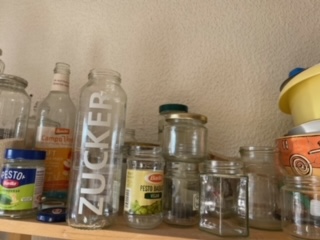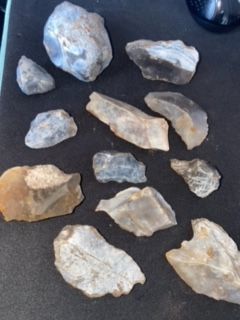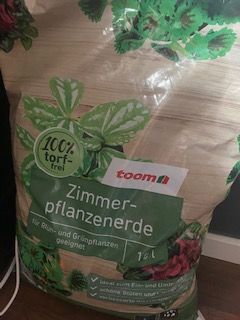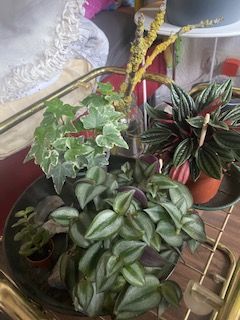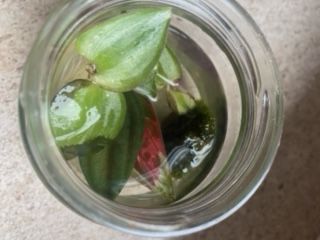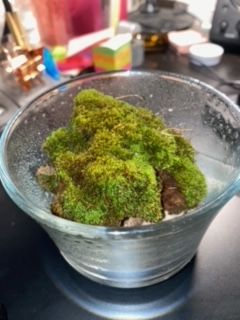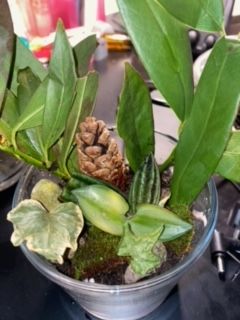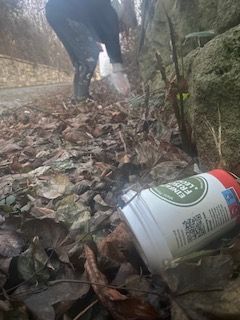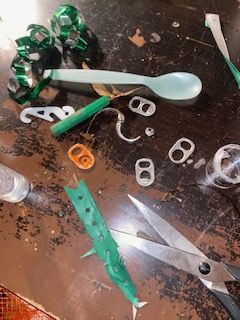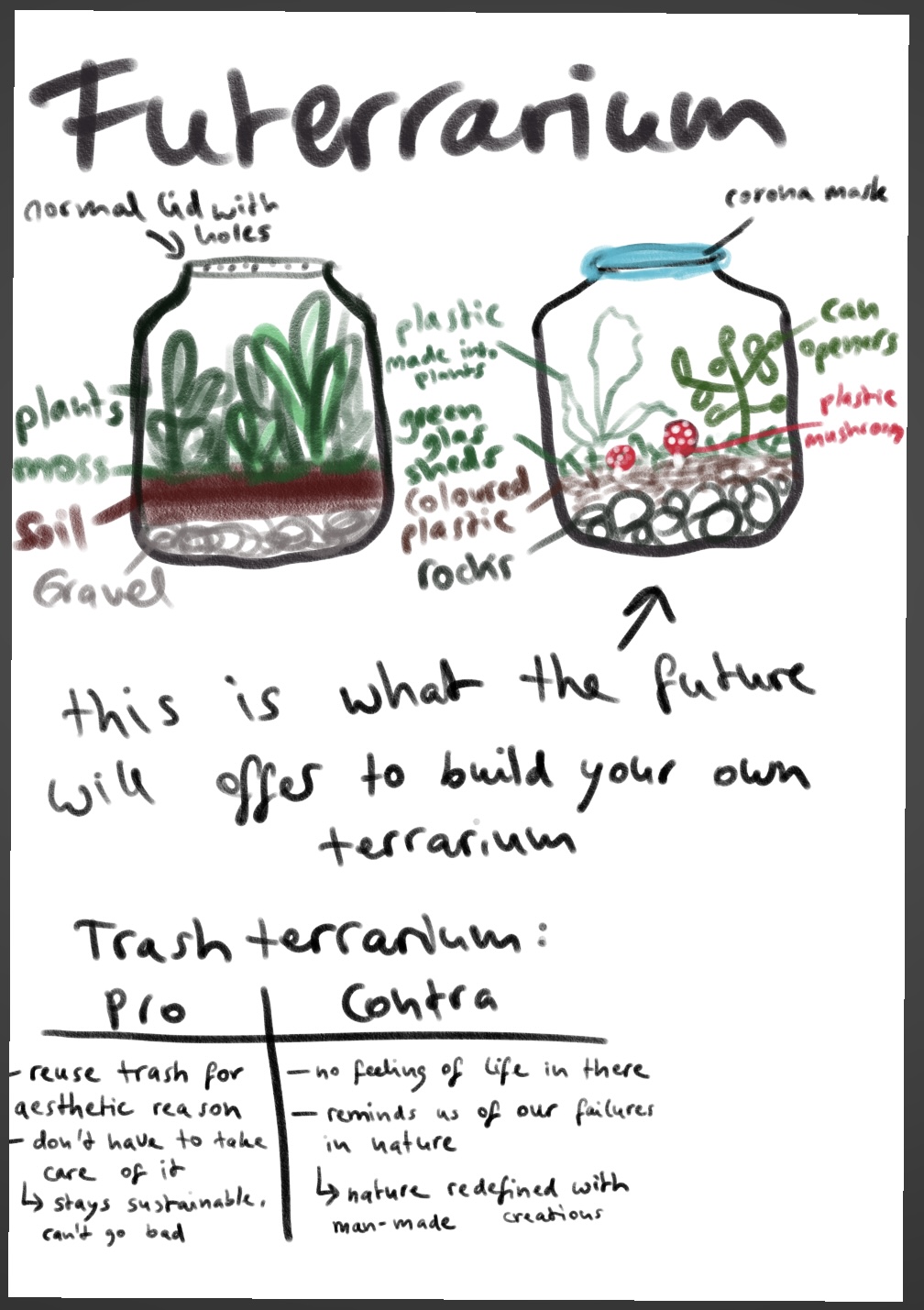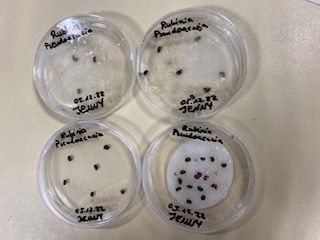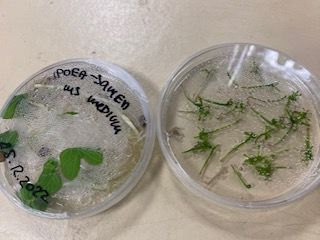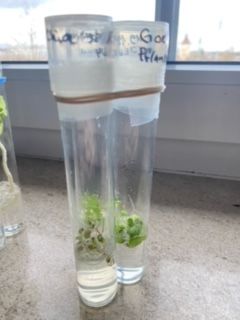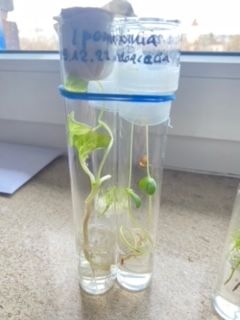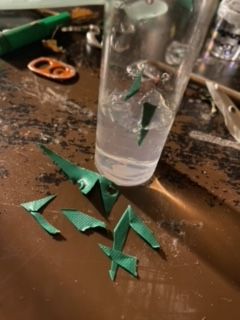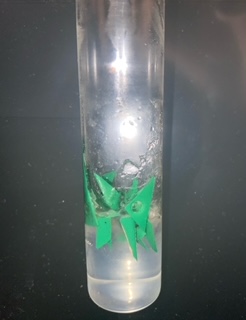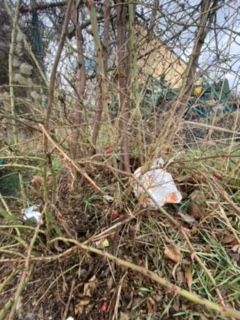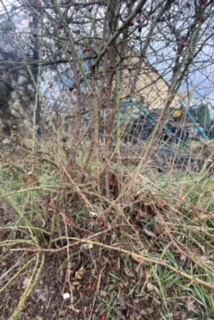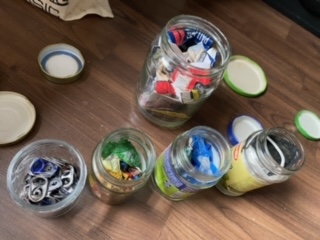GMU:Sustainable Aesthetics/Jennifer Alice Soggia/The process of making a sustainable and aesthetic project: Difference between revisions
Jenny Soggia (talk | contribs) |
Jenny Soggia (talk | contribs) No edit summary |
||
| (5 intermediate revisions by the same user not shown) | |||
| Line 26: | Line 26: | ||
*RULE FOR PLANTS: Either collect or buy them, no harm should be involved!* | *RULE FOR PLANTS: Either collect or buy them, no harm should be involved!* | ||
[[File:MASEN JARS.jpeg]] [[File:STONES.jpeg]] | [[File:MASEN JARS.jpeg]] [[File:STONES.jpeg]] [[File:imagePLANT.jpeg]] [[File:PLANT3.jpeg]] | ||
[[File:imagePLANT2.jpeg]] [[File:mosss.jpeg]] | |||
[[File:imagePLANT.jpeg]] [[File:PLANT3.jpeg]] | |||
[[File:imagePLANT2.jpeg]] [[File:mosss.jpeg]] | |||
Moss that is ripped from its place of growth, takes years to regrow. If it is already decaptivated from its origin, its safe to take. Ask mother nature if it would hurt, if its taken away!) | Moss that is ripped from its place of growth, takes years to regrow. If it is already decaptivated from its origin, its safe to take. Ask mother nature if it would hurt, if its taken away!) | ||
| Line 50: | Line 47: | ||
'''Grow plants in a sterile glas environment''' | '''Grow plants in a sterile glas environment''' | ||
[[File:stecklinge.jpeg|400px]] [[File:stecklinge1.jpeg|400px]] [[File:stecklinge2.jpeg|400px]] | |||
[[File:stecklinge3.jpeg|400px]] | |||
'''attempt of putting trash in this aesthetic''' | |||
[[File:trashinglas.jpeg]][[File:TrashPlant.jpeg]] | |||
[[File:trashinglas.jpeg]] [[File:TrashPlant.jpeg]] | |||
'''Different types of trash''' | '''Different types of trash''' | ||
Through collecting trash and putting them in glass containers, it creates a transparent way of trash being displayed aestheticly, pathology of trash, recycled in years, being able to observe the process | Through collecting trash and putting them in glass containers, it creates a transparent way of trash being displayed aestheticly, as a form of pathology of trash, being recycled in years, while also being able to observe the process | ||
[[File:TrashBefore2.jpeg]] [[File:TrashAfter2.jpeg]] | |||
[[File:collectionProcess.jpeg]] | |||
Latest revision as of 13:52, 6 February 2023
General Ideas
> turn nettels into ropes and try to make textile or baskets etc. out of it
> recycle trash into pots for plants + take kitchen scrapes/ herbs/ seeds for regrowing itself.
> turn natural ressources into colours/ paint. for example thumeric = yellow
> I could also combine these ideas into one big project: selfmade coloured basket = pot for the regrowing
plant.
> find a new usage for trash
> generating Bio gas by using compost
Chosen idea
- use empty masen jars (my flatmates&me have a huge collection)
give them a new purpose by turning them into terrariums
- this way the plant life becomes sustainable in an aestheticly pleasing way
Building a terrarium
> first layer: gravel > second layer: soil > third layer: taller plants (place them et the back), smaller plants (placed at the front) > last step: place moss, nice looking stones and pieces of tree trunks > (extra step: place tiny insects that are good for the little eco-system: for example snails and spring tails)
Gather materials
- RULE FOR PLANTS: Either collect or buy them, no harm should be involved!*
Moss that is ripped from its place of growth, takes years to regrow. If it is already decaptivated from its origin, its safe to take. Ask mother nature if it would hurt, if its taken away!)
Further development of this project
Through collecting plants, it was quickly noticed that there is a lot of trash laying around too. Simply picking up the trash, helps the environment all around. Some trash that has been collected could even be used as a Trash-Terrarium, giving trash a new purpose: sustainable aestheticly pleasing art
another way to create life forms in glass containers is to:
Grow plants in a sterile glas environment
attempt of putting trash in this aesthetic
Different types of trash Through collecting trash and putting them in glass containers, it creates a transparent way of trash being displayed aestheticly, as a form of pathology of trash, being recycled in years, while also being able to observe the process
